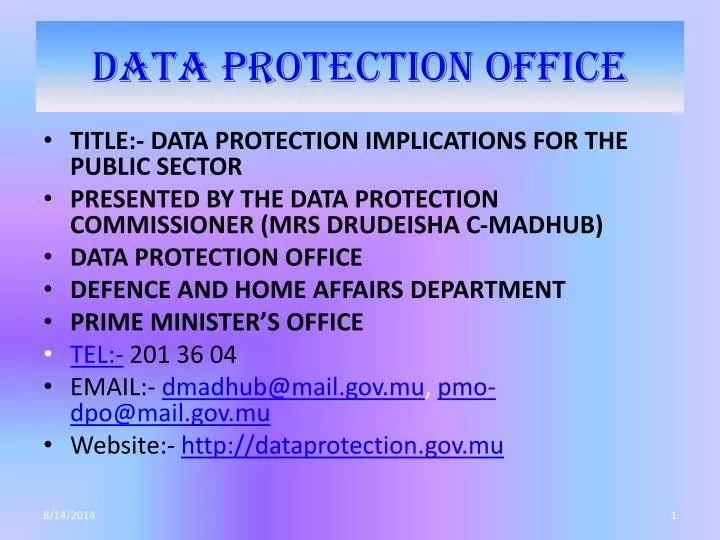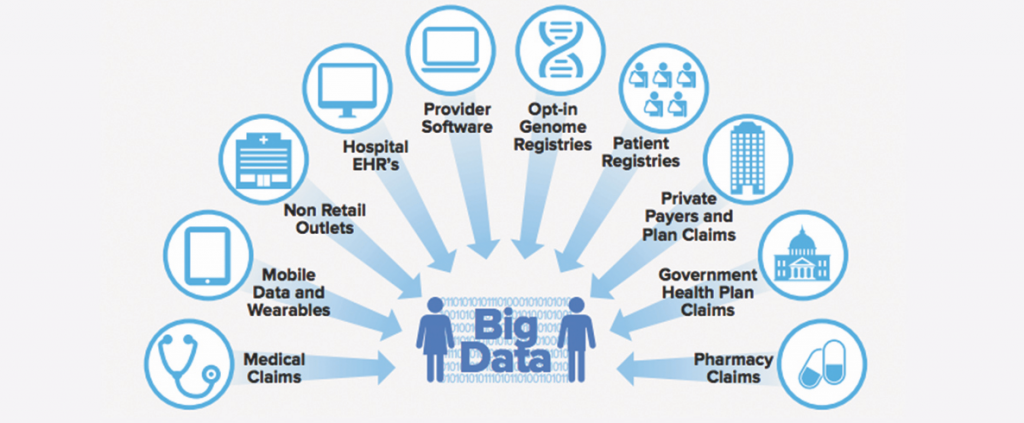Table of Content
- Win a Drewton's Yorkshire Hamper with McClarrons for Yorkshire Day 2022!
- How to identify risks and increase organisational compliance with the UK GDPR and UK Data Protection Act.
- How McClarrons helps the Care Sector
- More key social care legislation
- What residential care homes are doing wrong
- Health and care
- McClarrons’ checklist for agricultural vehicle and machinery safety this autumn – supported by MeritAgCheck
Personal data must be adequate, relevant and limited to what is necessary - care providers should only have access torelevanthealth and medical records. Personal data shall be collected for specified, explicit and legitimate purposes - if you wish to use personal data for another purpose you will need additional consent/grounds for processing. The technical storage or access that is used exclusively for anonymous statistical purposes.

Particular thought will need to be given to whether CCTV can be used in bedroom areas having regard to the legal requirements on sensitive personal data, including data concerning a person’s health. Is the use of surveillance cameras in care homes an acceptable practice? We look at the legal issues to be considered in making an informed decision. Each residential care home is unique, with its own operational needs and with its own daily challenges. Not all the failings identified by the ICO will be applicable to all residential care homes, and its recommendations will not be appropriate in every case.
Win a Drewton's Yorkshire Hamper with McClarrons for Yorkshire Day 2022!
As with the previous data protection legislation, residents have a qualified right of access under the GDPR to their own personal data and this will include access to recordings of them made by the CCTV. BLS has extensive experience in the health and social care sector, working with large NHS trusts, to GP Federations, right through to rural sole-trader holistic services and independent care homes and support facilities. Every reasonable step must be taken to ensure that personal data that is inaccurate, having regard to the purposes for which they are processed, is erased or rectified without delay. There is an express requirement under the GDPR that personal data is to be processed for only as long as its purpose requires it to be. The care home operator will therefore need to consider for what period footage should be stored by the home and any policy on CCTV should reflect this.

This article does not propose to discuss processing conditions in any degree of detail. Earlier this month, the Information Commissioner’s Office published a report of its findings following 11 visits undertaken during 2014 to residential care homes. The objective was to understand how the care homes were processing personal data, to identify the shortcomings and to recommend improvements in practice. Consent - Consent is also a lawful basis for sharing information in UK GDPR and would cover sharing where the individual has given clear consent for you to process their personal data for a specific purpose.
How to identify risks and increase organisational compliance with the UK GDPR and UK Data Protection Act.
If a staff member has any concerns or doubts, the Home's manager or safeguarding lead should be consulted for advice. Individuals (adults and other children / young people) who may pose a risk of harm to a child. Processing - any way in which data can be collected, stored, used or organised.

Failure to provide individuals with adequate information about how their personal data was to be processed. All staff in the Home who work with children should complete information sharing training - including refreshers. This training should equip staff with the skills and knowledge to share information in a timely and safe way. Organisations with over 250 employees dealing with sensitive data will need to appoint a data protection officer, to monitor or process sensitive data.
How McClarrons helps the Care Sector
Contract - for GDPR a contract is one of the 6 lawful bases for processing personal data. This means that you can rely on this basis if you need to process someone’s data in order to fulfil a contractual obligation. Legitimate interest will not apply if personal data is used for any other purpose, for example where the interests of the organisation override the interests, rights or freedoms of the individual / data subject. There must be appropriate security in place in respect of the personal data - security measures are needed to prevent unauthorised processing or destruction and all staff must know the steps to protect the data.
Personal data breaches are recorded in the risk register, whether they are reportable or not. This website is using a security service to protect itself from online attacks. There are several actions that could trigger this block including submitting a certain word or phrase, a SQL command or malformed data. There are separate safeguards for personal data relating to criminal convictions and offences. Staff should use their professional judgement and knowledge from this training when making decisions about when to share information.
More key social care legislation
There are a number of misconceptions we come across when it comes to Management Liability; here, we explain the reality and explore some of the additional benefits specialist rural management liability – Rural Protect - can bring to rural and farming businesses. In our video, McClarrons’ commercial insurance specialists have compiled and answered some frequently asked questions to help you understand tradesman insurance. Business Interruption Insurance is one of the most complicated areas of insurance and, as such, is an aspect of cover that is most likely to cause a problem in the event of a claim. Here, we explain what it is, how it works, the potential pitfalls to avoid when arranging it, and how to approach Business Interruption Insurance for your own business needs. Since the start of the pandemic, we have seen both domiciliary care and care home insurance markets limit their exposure in relation to possible Communicable Disease claims. With the assistance of our insurer partner, AXA Insurance UK plc, we inform you about the current situation of motor claims and help you understand the potential issues involved and the implications of these.
One of these bases is that the individual has consented to their information being shared. However, It is not necessary to seek consent to share information for the purposes of safeguarding and promoting the welfare of a child. This means that fears about sharing information must not be allowed to stand in the way of the need to promote the welfare, and protect the safety of, children. Transparency is at the heart of the GDPR and care homes that propose to use CCTV, particularly in bedroom areas, should review how to ensure transparency and deal with objections. It is important to note that if consent is relied upon as the lawful ground for processing, it must be express and not inferred and that there must be simple ways by which the data subject can withdraw consent. It is important for care homes to recognise that as data controllers it is incumbent on them to identify the relevant lawful bases for processing for both personal and special category data; this should be reflected in the organisation’s privacy notice.
Without a subpoena, voluntary compliance on the part of your Internet Service Provider, or additional records from a third party, information stored or retrieved for this purpose alone cannot usually be used to identify you. Many organisations are not aware of what policies are required to ensure they are compliant with data protection legislation, or if they are in place, when they were last updated. Dealing with subject access requests can be a time-consuming and labour intensive task and is also time sensitive under data protection legislation.

Familiarise yourself with the data you currently hold – You need to review what personal data you currently hold, why you have it, and how you obtained it. These new rules as stated above allow you to communicate information that is essential to the provision of your service. The new General Data Protection Regulation is an EU rule which will replace the Data Protection Act of 1998 from 25th May.
This can cost a business in terms of expense, recovery time and through damage to reputation. Personal data includes but is not limited to; any information that can identify an individual, email addresses, telephone numbers, HR records, DBS information, medical records, photos, ID numbers and home addresses. No organisation is immune to a data breach and the consequences – and subsequent workload – can be extensive. BLS Stay Compliant are well versed in handling data breach incidents and can also help ensure measures are put in place to prevent future breaches. Adequate, relevant and limited to what is necessary in relation to the purposes for which they are processed. Further processed for archiving purposes in the public interest, scientific or historical research purposes or statistical purposes shall not be considered to be incompatible with the initial purposes.

Keep a record of your decision and the reasons for it - whether it is to share information or not. If you decide to share, then record what you have shared, with whom and for what purpose. Whenever any information is shared it should be proportionate, and a record should be kept of what has been shared, with whom and for what purpose and the reasoning behind it. Where there is a clear risk of significant harm to a child, or serious harm to adults practitioners should be confident that they can share information. Often, it is only when information from a number of sources has been shared and is then put together, that it becomes clear that a child has suffered, or is likely to suffer, significant harm.
McClarrons’ checklist for agricultural vehicle and machinery safety this autumn – supported by MeritAgCheck
A breach goes beyond losing someone’s personal data or leaving their information vulnerable to hackers. It can also relate to unauthorised access or disclosure, loss or complete destruction, and alteration. Encryption sits high on the GDPR agenda as this greatly reduces the likelihood of leaving data vulnerable to exposure.


No comments:
Post a Comment